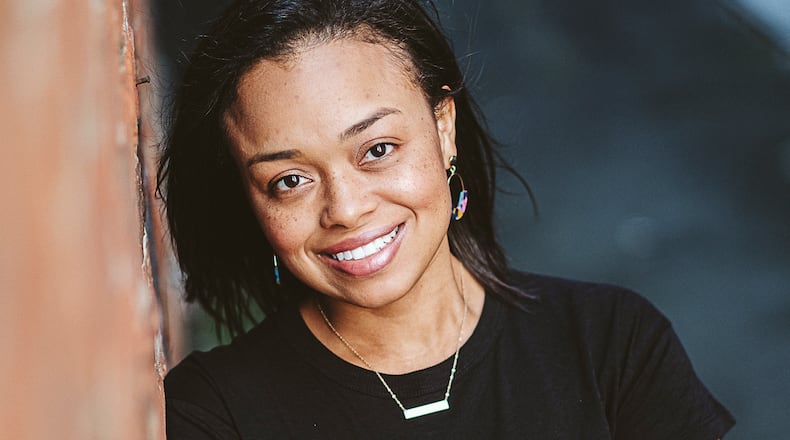Taylor Harris’ memoir, “This Boy We Made: A Memoir of Motherhood, Genetics and Facing the Unknown,” is a powerful chronicle of a mother’s seven-year journey to pinpoint the source of her son’s sickness.
“I had the length of the horizon to fail.” That isn’t the first reaction every mother would have upon waking one morning to discover her outgoing, 22-month-old baby with sparkling eyes is lethargic and vacant. But that’s the thought that turns over in Harris’ mind as she grapples with whether to take her son Tophs (short for Christopher) to the doctor.
On this day, Tophs drinks excessive amounts of water but refuses food. His heart is racing while he nods in and out of sleep. Perhaps he’s simply tired or still recovering from a recent stomach bug. “Maybe it was nothing. Maybe it was the old me, noticing.” Harris observes.
The “old me” she refers to is the one who has been schooled since childhood that she is too obsessed over what might be wrong with her body.
Fortunately, her husband Paul, a University of Virginia professor of education, trusts her instincts. That, along with her “belief over time that he could handle almost anything” helped ground her even before Tophs got sick. And Paul’s support gives her the courage to bypass her fear of being labeled overreactive and take Tophs to the doctor. It’s the right call. Her boy is diagnosed with ketotic hypoglycemia — perilously low blood sugar — and is in danger of having a seizure.
The doctors are able to stabilize Tophs, but they cannot pinpoint what is causing his condition. With stunning insight and raw accountability, Harris dips into her own past to reveal her fear that she is the cause of his condition. Did that time he rolled off the bed as an infant damage his brain? Were his struggles with breastfeeding to blame? Did taking Zoloft during her pregnancy to manage her anxiety disorder cause Tophs’ problems? “If questions were birthstones,” she says, “what if something really is wrong would be mine.”
Credit: Handout
Credit: Handout
There are times when relying on her faith helps alleviate Harris’ sense of culpability, and times when it does not. “If God had designed my son and allowed him to emerge from my womb this way, I knew I could find peace and joy in mothering him. I already had,” she writes. “If, however, I had hurt or changed the human God had designed, my guilt would erode any peace. Nothing has ever threatened to consume me quite like this shame.”
As her narrative dances between the unfolding nightmare of her son’s mysterious sickness and her own lifelong battle with generalized anxiety disorder, Harris wonders if being “a mother whose desire to appear normal, to seem rational, to be liked, weakened her ability to care for her son.”
A deep need for acceptance is an integral part of Harris’ makeup. “I want people to like me, and to like Black people, even if they can’t save me from panic or worse.” Her desire for approval becomes particularly harrowing as she bumps up against institutionalized racism while fighting for the health and educational resources Tophs requires. Constantly checking herself while internally reeling from microaggressions, she admits, “Paul has asked me more than once why I have to be mad before I’ll stand up for myself. The short answer is I don’t know.”
The Harrises are affluent and educated. The discrimination they face is complex and nuanced, bubbling under the surface but seldom pointed enough to put a finger on. But when she explains to her 6-year-old daughter what is happening when the 2017 white supremacists rally turns violent in their former residence of Charlottesville, Virginia, Harris is dismayed to watch as “a burden unfolded itself over Eliot’s shoulders, a mantle I didn’t want her to carry.”
Terrified for Tophs’ future as a young Black man with special needs, Harris is profoundly grieved by the 2019 death of 23-year-old Elijah McClain, an unarmed Black man killed by police in Aurora, Colorado. “It is dangerous to be Black and sick. Dangerous to be Black and in need,” she writes.
In “This Boy We Made,” Harris refuses to allow Tophs to be reduced to a medical mystery. He is her living, breathing boy who she humanizes with her words. Her intricate depictions of his personality as he blossoms into a child with “comedic timing and impeccable rhythm,” who “choreographs a liturgical dance to Lorde’s ‘Royals’ one afternoon,” remind the reader that he is so much more than an inconclusive test result.
Once she realizes medicine isn’t going to provide the key to Tophs’ control center, Harris wonders: “What were my expectations — of my child and his body, of myself and my body? Had I expected near perfection or ease?” And bigger concerns than acceptance loom, the largest of all: Can we live with this or is it going to take his life? And once the quest for answers sends them into the realm of genetic testing, might the discovery of genetic mutations within their bloodline save the lives of others?
“This Boy We Made” emerges as a profound portrait of not only Harris’ love for her family but also her courage. The courage required to keep moving forward in the face of not knowing, to have a third child when a medical mystery surrounds her second, to uproot her family so Paul can pursue his calling to preach. And the courage Harris possesses to ensure nobody in her family lives half a life.
NONFICTION
by Taylor Harris
Catapult
272 pages, $26
About the Author
The Latest
Featured



